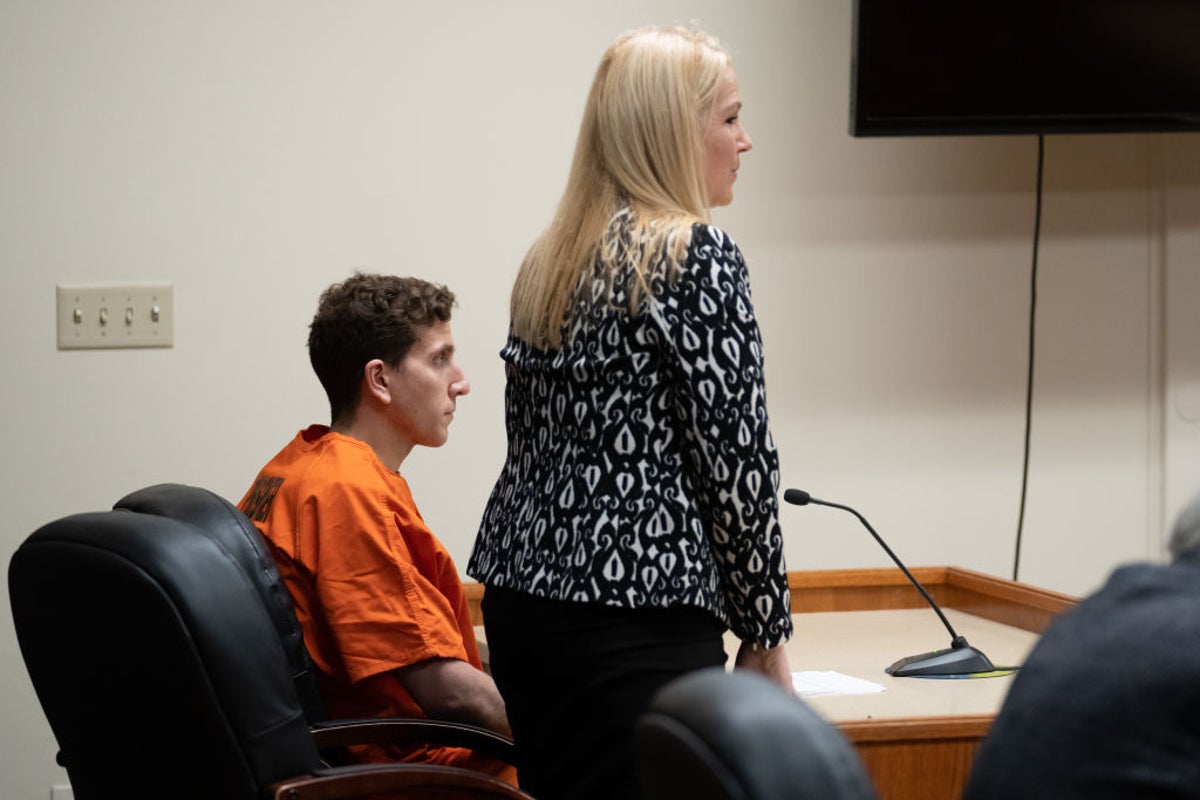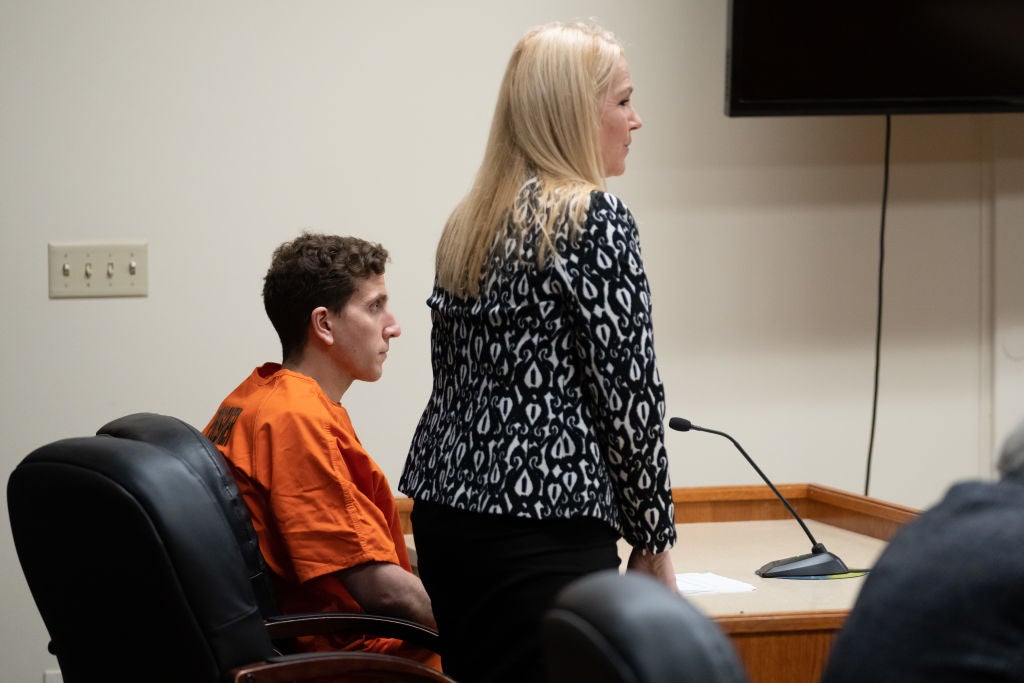
The public defender representing a suspect accused of murdering four University of Idaho students previously represented the parent of one of the victims.
Concerns of conflicts of interest in the Idaho murders case were raised after The Idaho Statesman reported on Monday that Chief of the Kootenai County Public Defender’s Office Anne Taylor filed on 5 January to recuse herself from representing one of the slain University of Idaho students’ mother — the same day that quadruple murder suspect Bryan Kohberger was extradited from Pennsylvania custody to Idaho.
Ms Taylor is now representing Mr Kohberger, a Washington State University PhD student, as he faces the death penalty for the murders of Kaylee Goncalves, Madison Mogen, Xana Kernodle and Ethan Chapin.
“Anytime a former client is involved in a current representation, a lawyer should evaluate any potential conflicts,” former counsel for the Idaho State Bar Brad Andrews also told The Statesman. “Conflicts are very factually based, and so the lawyer decides whether the lawyer has a conflict.”
The outlet reports that Ms Taylor is one of thirteen qualified public defenders in the state to represent clients in a potential death penalty case. The Independent reached out to Ms Taylor’s office for comment.
Last week, records were unsealed of a search warrant executed at Mr Kohberger’s apartment in Pullman on 30 December, the same day he was arrested at his parents’ home in Pennsylvania for the murders.
A record of evidence recovered during the apartment search was unsealed, revealing the seizure of 15 items including hairs, receipts, a computer tower, a disposable glove and items with peculiar stains.

The affidavit, released on 5 January, gave new details about what led investigators to the suspect but still offered no connection between the victims and Mr Kohberger.
The bombshell documents did reveal that investigators believe Mr Kohberger may have stalked the student home in the run-up to the mass murder, with cellphone data placing him around the property 12 times before 13 November.
At the time of the murders, investigators believe Mr Kohberger turned his cell phone off in order to try to avoid detection.
However, cellphone data places him close to the home on King Road at around 9am on 13 November – suggesting that he returned to the scene of the crime just hours after allegedly murdering the four victims at around 4am, the affidavit reveals.
As well as cellphone data, the affidavit reveals that other evidence also led them to arrest Mr Kohberger for the student murders.
Police said that his DNA was found on a knife sheath left behind at the scene by the killer and his white Hyundai Elantra was caught on surveillance footage at the crime scene at the time of the murders, the affidavit reveals.

One of the victims’ surviving roommates was also able to partially describe the killer to investigators after she came face to face with him in the aftermath of the murders.
Mr Kohberger is next scheduled to appear in court on 26 June for his preliminary hearing.
The entire week has been set aside for the hearing – when evidence of the case against Mr Kohberger will be laid out for the first time in court and Mr Kohberger is likely to enter a plea on the charges.
Until then, Mr Kohberger will be held behind bars at Latah County Jail after he was ordered to be held on no bail for a second time.
As a criminal justice PhD student at WSU, he lived just 15 minutes from the victims over the Idaho-Washington border in Pullman. He had moved there from Pennsylvania and began his studies there in August, having just completed his first semester before his arrest.
Before this, he studied criminology at DeSales University – first as an undergraduate and then finishing his graduate studies in June 2022.
While there, he studied under renowned forensic psychologist Katherine Ramsland who interviewed the BTK serial killer and co-wrote the book Confession of a Serial Killer: The Untold Story of Dennis Rader, the BTK Killer with him.
He also carried out a research project “to understand how emotions and psychological traits influence decision-making when committing a crime”.
If convicted, he is facing life in prison or the death penalty, for the murders that have rocked the small college town of Moscow and hit headlines around the globe.






